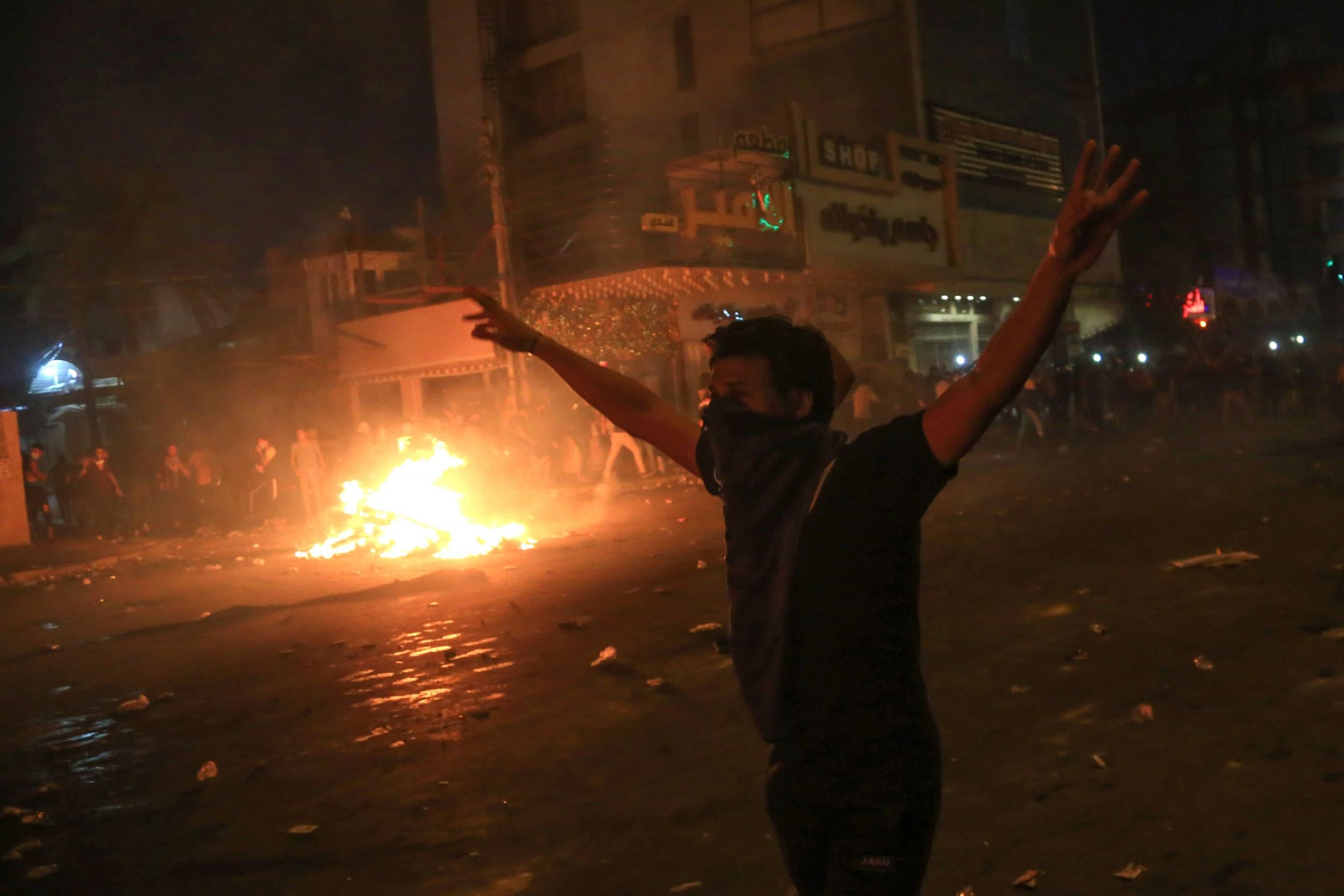Isis names new leader as Abu Ibrahim al-Hashimi al-Qurashi after death of Abu Bakr al-Baghdadi
Isis supporters had voiced doubt over Baghdadi’s death online, as some threatened revenge attacks
Isis has named its new leader following the death of former “caliph” Abu Bakr al-Baghdadi.
The terrorist group announced that he had been replaced by Abu Ibrahim al-Hashimi al-Qurashi.
It issued a seven minute audio message via official propaganda channels, following days of speculation and denial among supporters.
It came five days after Baghdadi blew himself up during a US raid on his hideout in Syria’s Idlib province.
Isis’s message also confirmed the death of its former spokesman, Abu Hassan al-Muhajir, who was killed in a US airstrike in Jarablus hours later.
It urged followers to act on a call made by Baghdadi in his last message, released last month, where he incited jihadis to free captured Isis fighters from camps and prisons, and recruit more followers to their cause.
The message included a threat to the US not to celebrate the deaths and vowed that Isis would continue its campaign both in and beyond the Middle East.
A new spokesman, who delivered the audio message, was named as Abu Hamza al-Qurayshi.
All names given by Isis are kunyas, which have been used as noms de guerre by Isis fighters seeking to conceal their real identities and adopt Islamic symbolism.
The new leaders’ last names, al-Qurashi, signifies that they claim to be descendants of the tribe the Prophet Mohamed belonged to.
The announcement said the new “caliph” had been chosen by Isis’s governing shura council and suggested he was both a veteran jihadi fighter and religious scholar.
Isis affiliates were issuing new pledges of allegiance to al-Qurashi as the message spread on Thursday afternoon.
International governments have welcomed news of Baghdadi’s death but experts warn that Isis’s bureaucracy and increased focus on international factions outside Iraq and Syria would ensure its survival.
Some supporters have threatened revenge attacks over the US operation, putting intelligence agencies in western countries on heightened alert.

The new Isis leader’s real name was not immediately known, and it was unclear whether he is the same person named as successor by Baghdadi’s brother-in-law.
Mohammed Ali Sajet previously said a man known in Isis documents as Hajji Abdullah, and by US authorities as Amir Muhammad Sa’id Abdal Rahman al-Mawla, could become caliph.
An American wanted notice describes the Iraqi man as one of Isis’s most senior ideologues, after rising up the ranks of al-Qaeda in Iraq, and said he helped justify the Yazidi genocide.
Raffaello Pantucci, the director of international security studies at the Royal United Services Institute (RUSI), said al-Qurashi was likely to be an Iraqi jihadi who had been in Baghdadi’s close circle since his time as leader of al-Qaeda in Iraq.
He told The Independent such an appointment could cause unrest in Syrian Isis factions and that the new leader would “shape the organisation” going forward.
The circumstances of Baghdadi’s capture suggested he was still “involved in the conflict”, in contact with subordinates and driving operations, Mr Pantucci said.
“These guys come and go but the organisations persist,” he added. “Although leaders are significant, the underlying issues are more significant.”
Citing anti-government protests in Iraq and the ongoing civil war in Syria, the researcher said Isis would continue to have a pool of disenfranchised local recruits.
Mr Pantucci added: “Externally, the threat picture stays pretty constant and is only likely to get worse given the underlying conditions.”
Donald Trump said Baghdadi killed himself and three children by detonating a suicide bomb after being chased into a tunnel by a dog on Saturday.

“He died like a dog, he died like a coward,” the US president added. “The world is now a much safer place.”
Many Isis supporters had expressed doubt over the announcement of Baghdadi’s death ahead of the group’s confirmation.
Boris Johnson called it “an important moment in our fight against terror”, but added: “The battle against the evil of Daesh [Isis] is not yet over.
“We will work with our coalition partners to bring an end to the murderous, barbaric activities of Daesh once and for all.”
There have been warnings over the potential of an Isis resurgence after Mr Trump withdrew US troops from northern Syria, allowing Turkish-backed forces to invade areas where jihadis are being held.
Kurdish commanders in the region have told The Independent they cannot secure Isis prisons and camps if fighting with Turkish forces continues in spite of a Russia-brokered ceasefire.
“We do not know for how long we will be able to keep these prisons secured,” said Syrian Defence Forces commander Mervan Qamishli.
American officials say that at least 100 Isis fighters have already escaped in the weeks since Turkey launched its incursion against Kurdish fighters, which were allied to the US-led coalition but considered terrorists by Ankara.
The British government has refused to repatriate captives for trial and dramatically increased its use of controversial citizenship deprivation powers to prevent any return to the UK.
In August, former defence minister Tobias Ellwood warned that the detention of thousands of jihadis and their families in Syria was creating conditions for an Isis resurgence and global terror attacks.
Join our commenting forum
Join thought-provoking conversations, follow other Independent readers and see their replies
Comments
Bookmark popover
Removed from bookmarks